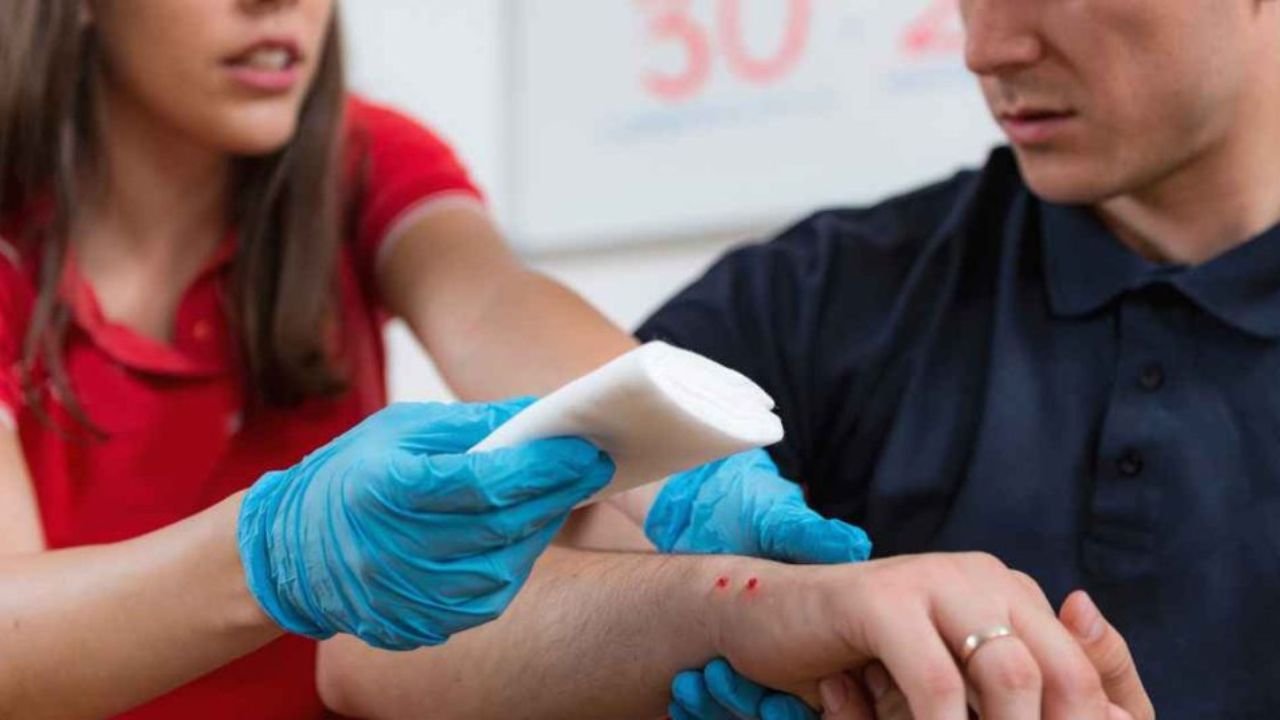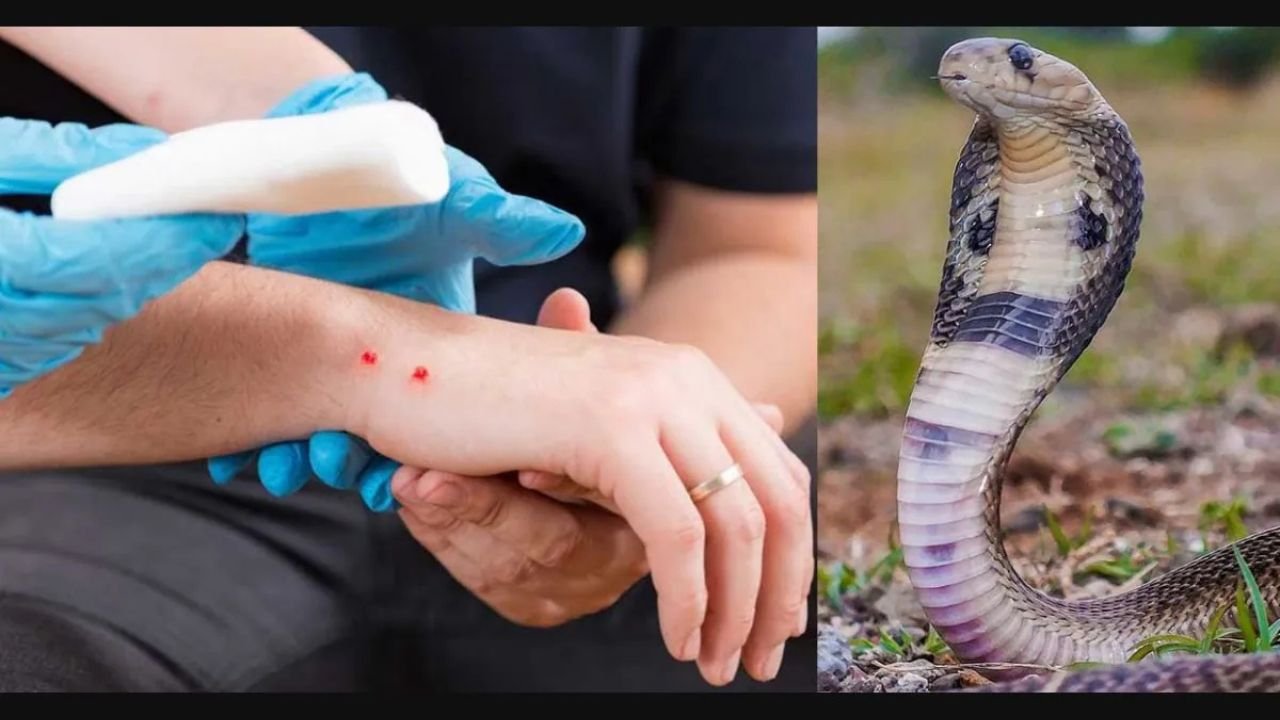First Aid For Snake Bite: Hearing the word snake is enough to send chills down anyone’s spine. During the rainy season, the risk of snake sightings and bites increases significantly. This is because waterlogging in snake burrows forces them to come out in search of drier ground. It’s also the breeding season for snakes, which causes their numbers to rise. They are commonly found in forested areas or near dense vegetation. Unfortunately, people often encounter snakes while working outdoors, which sometimes leads to bites. In such situations, knowing how to react quickly can be the difference between life and death.
First Response: Act Fast, Stay Calm
If you or someone else is bitten by a snake, the first step is to remain as calm as possible. Panic increases heart rate, which can cause the venom to spread faster. Immediately wash the bite area with soap and water to prevent infection. Then, tie a rope or thick thread about half an inch above the bite site to slow the venom’s spread through the bloodstream. However, make sure it’s not too tight, as that can cut off blood circulation completely. Keep the affected limb elevated, ideally above the level of the heart, to further reduce venom circulation.

Slow the Spread: Keep the Body Still
After administering first aid, minimize the movement of the victim as much as possible. Movement increases blood circulation, which can cause the venom to travel more rapidly through the body. Avoid walking or using the affected limb. Instead, carry the patient to the nearest medical facility. It’s critical to get medical help immediately, as anti-venom treatment may be necessary. Also, try to remember the snake’s color and size for identification, but do not waste time trying to catch it.
Avoid Sleep and Food: Stay Awake and Alert
Another lesser-known fact about snake bites is the sudden onset of extreme drowsiness, especially if the bite is from a venomous snake. The patient must be kept awake and alert until they receive medical treatment. Do not let them eat or sleep for at least a few hours post-bite, as digestion and sleep slow down the body’s ability to react and can complicate treatment. If the bite causes swelling, remove any jewelry, such as rings or anklets, immediately to avoid complications due to restricted blood flow.
Common Mistakes to Avoid After a Snake Bite
In a panic, people often make mistakes that can worsen the situation. Never apply ice to a snake bite—it can cause tissue damage. Do not attempt to suck out the venom with your mouth; this is both ineffective and dangerous. Avoid soaking the bite area in water or consuming alcohol or caffeine, as these substances affect blood pressure and circulation. Also, steer clear of painkillers like aspirin or ibuprofen, as they can thin the blood and increase complications.







